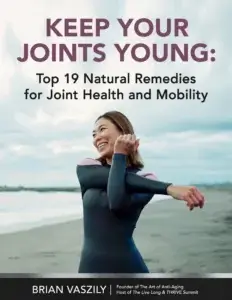You stroll down the skincare aisle, eyes scanning for those magic words – “paraben-free,” “natural,” and “organic.” You reach for a product that claims to be all this and more, thinking you’ve hit the jackpot of clean beauty. But hold up! Have you ever checked the fine print on those labels?
 Yep, welcome to the world of “greenwashing,” where brands sprinkle buzzwords like confetti to lure in health- and eco-conscious consumers.
Yep, welcome to the world of “greenwashing,” where brands sprinkle buzzwords like confetti to lure in health- and eco-conscious consumers.
Sure, their products may “contain natural ingredients” or exclude one or two problematic ingredients. However, flip that bottle over and you’ll likely find a laundry list of synthetic ingredients lurking beneath the surface, including fragrances, sodium lauryl sulfate, polyethylene glycol (PEGs), and many others.
Now, here’s the kicker: the average woman uses nine different personal care products daily, exposing herself to a cocktail of up to 126 different chemicals. Some of these are downright concerning – think endocrine disruptors, neurotoxins, and even potential carcinogens. Scary, right?
10 Skincare Ingredients to Avoid at All Costs
There’s a long list of ingredients you’ll commonly see on big brands and many “poser organic” skin products that you’ll want to avoid. Here are ten of the worst-of-the-worst offending ingredients to watch out for:

1. Anything ending in PARABEN: Any ingredient that ends in paraben, such as methylparaben, propylparaben, and butylparaben, is often added to skincare products to prevent bacterial and mold growth. Yet, they’re also xenoestrogens, which mimic estrogen in the body. Plus, they can create issues at the cellular level, impacting your long-term health.
2. Alpha and Beta Hydroxy Acids (Lactic Acid and Glycolic Acid): Despite their touted benefits, products containing these acids may exacerbate UV-induced cellular damage that occurs in your skin, hastening the appearance of skin aging, rather than preventing it.
3. Hydroquinone & Benzophenone: With documented links to various cancers, including skin cancer, these compounds spell trouble for your skin and internal organs alike. Their potential toxicity to kidneys, liver, and eyes, coupled with the risk of ochronosis—a condition that causes your skin to thicken and turn bluish-grey—underscores the urgency of avoiding them. In fact, these chemicals are BANNED in Europe.
4. Fragrance: A catch-all term for over 3,000 chemicals—including some known carcinogens, allergens, and/or hormone disrupters—seeing “fragrance” on a skincare label is a huge red flag.
5. PFA’s & PEG’s: Laden with carcinogenic properties and posing threats to liver function, immunity, and thyroid health, these chemicals come under many names. Any ingredient with a hint of “fluoro” is one you want to avoid.
6. Octinoxate: Dubbed a UV filter, this compound’s hormone-mimicking effects and skin-absorption capabilities raise concerns about heightened breast cancer risk and thyroid hormone disruption. It’s also known as octyl methoxycinnamate (OMC), so if you see that on a skincare label, you want to steer clear.
7. Phthalates: Avoid phthalates at all costs. These chemicals are well-known for causing a range of issues, including reproductive dysfunction, congenital disabilities, asthma, diabetes, and ADHD. They’re used in many products to make them more liquid, like moisturizers and skin lotions.
8. Triclosan or Microban: These chemicals are used to prevent bacterial growth. On the surface, you’d think that would be a good thing. However, triclosan and microban don’t discriminate between good and bad bacteria. They may be partly responsible for the rise of superbugs and other dangerous illnesses.
9. Sodium Lauryl Sulfate (SLS): SLS is a common ingredient in a range of cosmetic and personal care products. It makes soap foam and also acts as a thickening agent. But it can be deadly thanks to the manufacturing process that is responsible for giving us SLS. Byproducts in SLS are linked to kidney and liver dysfunction.
10. Retinol: Retinol is a popular ingredient found in many skincare products for its ability to fight the signs of skin aging. Yet, for some people it can cause skin to become red, dry, and irritated–essentially counteracting its benefits. Additionally, some users may experience a burning or stinging sensation, and even peeling. Plus, retinol heightens sensitivity to sunlight, which can escalate the risk of skin damage and possibly even cancer. Since sun damage is one of the biggest accelerators of skin aging, long-term use of retinol may do more harm than good.
You Also Need to Beware “Organic Posers”
It’s crucial to be wary of what we call “organic posers” when it comes to skincare.

These are products, whether from big corporations or smaller brands, that use terms like “organic” or “wild-crafted” in their marketing to give the impression of safety and purity.
For example, they may display something like “Organic Ingredients!” on their label – with the word “Organic” especially prominent. Companies know that most people only skim-read versus scrutinize labels and other marketing closely. And the idea here is that by effectively shouting out the word “Organic,” people will assume the entire product is organic. And many do.
In reality, however, often only a small fraction of the ingredients in these products may be organic – sometimes just a couple of ingredients among a sea of synthetic ingredients!
This means it’s essential to scrutinize products labeled as “organic” or “wild-crafted” closely because – unless it is independently verified as organic by a third-party organization – there’s a good chance they contain numerous synthetic ingredients or substances grown and processed using pesticides and herbicides, all of which can be harmful to your health.
This caution even extends to high-end, expensive products. Always prioritize checking the ingredients list over being swayed by marketing claims.
The Best Way to Protect Yourself
 In the US, the best defense against label deception and marketing is to make sure any skincare product you use is USDA Certified Organic, which is the gold standard of skincare. This seal, which is independently granted, ensures the product meets stringent guidelines.
In the US, the best defense against label deception and marketing is to make sure any skincare product you use is USDA Certified Organic, which is the gold standard of skincare. This seal, which is independently granted, ensures the product meets stringent guidelines.
To be USDA Certified Organic means a product contains zero synthetic or potentially harmful ingredients you don’t want to feed your skin and body. A product must be independently verified to contain 95% or more truly organic ingredients, with the remaining 5% or less strictly limited to safe substances (such as minerals, for example, which by definition can’t be grown organically).
Plus, the USDA Certified Organic seal ensures all ingredients included in the formula are organically grown – without the use of pesticides, herbicides, and other harmful chemicals. It’s the best way to gain peace of mind.
Even if a skincare company uses the generic word “organic” over and over – but it doesn’t carry the USDA Certified Organic badge – there’s a reason. It likely does NOT spell good long-term results for your skin (or your health!)
Plus, Look for These 2 Skincare Nutrients
 When choosing skincare products, it’s not just about finding the USDA Certified Organic seal. You also want products that address the root causes of visible aging in our skin.
When choosing skincare products, it’s not just about finding the USDA Certified Organic seal. You also want products that address the root causes of visible aging in our skin.
As we age, the collagen in our skin, which helps prevent fine lines and wrinkles, decreases every year. By the time a woman reaches 40, her skin thickness has decreased by over 28% due to collagen loss. Additionally, elastin, another protein crucial for maintaining skin elasticity and the ability to “bounce back”, breaks down with age. This leads to sagging and drooping in areas like the under eyes, cheeks, arms, and neck.
Furthermore, many common issues and lifestyle habits today – such as the excessive amount of toxins in our world, poor diets, and lack of exercise – can accelerate the loss of both collagen and elastin!
To combat collagen depletion, many people apply skincare products that contain collagen. However, it’s important to note these may have very little effect, as the collagen molecules can be too large for the skin to absorb effectively.
Instead, opt for products with vitamin C, which plays a vital role in collagen production and is readily absorbed by the skin.
As for elastin, the smartest step is to seek out skincare products containing maple leaf extract. A 2018 study from the University of Rhode Island discovered that compounds in maple leaves, specifically glucitol-core-containing gallotannins (GCGs), can inhibit the activity of elastase, the enzyme responsible for breaking down elastin. This is crucial for maintaining firm, youthful-looking skin.
This “Age-Defying Dream Cream” Removes the Guesswork
Now that you know what to look for (and avoid) in a skincare formula, here’s one that checks all the boxes—so you know it’s highly effective and safe.
The Age-Defying Dream Cream is USDA Certified Organic— meaning there’s no “greenwashing” or “sneaky” ingredients to watch for on the label.
Plus, it includes over 25 of nature’s premier ingredients for your smoothest, most vibrant, and youngest skin possible. This includes nature’s most effective vitamin C botanicals to support healthy collagen and maple leaf extracts to keep your elastin levels exactly where you want them—for healthy, vibrant, and younger-looking skin.




I do not use any products mentioned in your writing on the list of products. I don’t wear make up products. I don’t trust them. Always read labels of products. Thank you . I send your recommendation on these products.
Good for you me neither, I am an ethical Vegan and respect mother nature in its entirety and make my own balms, soaps, etc. luv n light x
Very informative article. I appreciate the information.
Thank you! It has been getting harder and harder to know which products are real and safe to use.
Very informative.Thanks for all the warnings.
Very interesting article. I believe in and trust Purity Woods. I know there are no hidden ingredients and that these products are safe for my skin and body. You amaze me with all you are doing and all the information you provide. I’m trying to read and absorb as much as I can. Thank you!
I only use Purity Woods skin products on my skin at night. I like to knowing that only pure ingredients go into them. In addition, articles like this one, take the guess work out of trying to find the perfect serums and creams to use.
thanks for keeping us informed
Great article and I’ve made a list of the ingredients to avoid to have when shopping.
I love the Purity products I have used and appreciate that the ingredients are safe and effective. Any chance you will have a shampoo and body wash in the future?